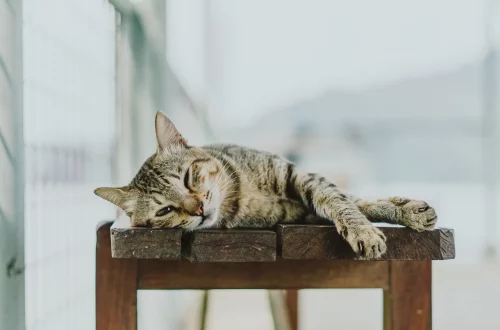
How Much Does a Rabies Vaccine for Cats Cost?
Vaccination is a crucial aspect of pet care that helps safeguard the health of our furry companions. Among the various vaccines available, the rabies vaccine is particularly significant due to the severe consequences of rabies infection. This viral disease not only poses a threat to pets but also to humans, making vaccination a public health priority. Rabies is primarily transmitted through bites from infected animals, and once symptoms appear, it is almost invariably fatal. Therefore, ensuring that your cat receives the rabies vaccine is vital for their safety and the safety of those around them.
As responsible pet owners, it becomes essential to understand the different factors that influence the cost of vaccinations. While the expense might vary depending on several elements, the importance of vaccinating against rabies remains constant. Additionally, many regions have laws mandating rabies vaccinations for pets, which adds another layer of necessity to this health measure. Beyond the immediate financial considerations, investing in your cat’s vaccination can prevent potentially exorbitant costs associated with treating rabies or managing an outbreak.
Understanding the costs associated with a rabies vaccine for cats involves looking at various factors including veterinary fees, geographical differences, and the overall importance of this vaccination in maintaining your pet’s health.
The Average Cost of Rabies Vaccination for Cats
The cost of a rabies vaccine for cats can vary significantly based on several factors. On average, you can expect to pay between $15 and $30 for the rabies vaccine itself. However, this price can fluctuate depending on location, the specific veterinary clinic, and any additional services provided during the visit.
In urban areas, for instance, the prices are generally higher compared to rural locations. This is often due to the increased operational costs that veterinary clinics face in cities, including higher rent and staffing expenses. Some clinics might also bundle the rabies vaccine with other vaccines or services, which could affect the overall cost.
Additionally, many veterinary practices offer wellness packages or vaccination clinics that can lower the price of vaccinations, including rabies. These packages can be beneficial for pet owners looking to manage costs while ensuring their cats receive necessary vaccinations. It is advisable to contact local veterinarians to inquire about their pricing and any available packages.
Another aspect to consider is the age of your cat. Kittens typically receive their first rabies vaccine between 12 to 16 weeks of age. Some veterinarians may require an initial visit for a health check before the vaccination, which can add to the cost. After the initial vaccination, a booster shot is usually required one year later, and then every one to three years thereafter, depending on local regulations and the vaccine used.
It’s also worth noting that some states or municipalities may have specific laws regarding rabies vaccinations. In such cases, if a cat is not vaccinated according to local laws, pet owners could face fines or other penalties. Therefore, budgeting for the rabies vaccine and ensuring timely vaccinations is crucial for both compliance and the health of your cat.
Factors Influencing the Cost of Rabies Vaccination
Apart from geographical location and the clinic’s pricing policies, several other factors can influence the cost of a rabies vaccine for cats. One significant factor is the type of veterinary practice you choose.
Private veterinary clinics typically charge more than community clinics or non-profit organizations. This difference often reflects the level of service, the expertise of the staff, and the facilities available at the clinic. For example, a clinic with a strong reputation and advanced medical technology may charge a premium for their services, including vaccinations.
Moreover, the age and health condition of your cat can also play a role in the overall cost. If your cat has pre-existing health issues, the veterinarian may recommend additional tests or treatments before administering the vaccine, which would increase the total cost. Regular health check-ups are essential for older cats or those with chronic conditions, and these visits can add to the expense of keeping your cat up to date with vaccinations.
Additionally, the time of year can influence vaccination prices. Some clinics may offer discounts during specific months or seasons when they aim to increase the number of vaccinated pets in the community. Awareness campaigns during rabies awareness month, for example, might lead to reduced rates for vaccinations.
Another cost consideration is whether you choose to take your cat to a mobile veterinary service. These services can sometimes offer vaccinations at a lower price due to lower overhead costs. However, you should ensure that the mobile service is reputable and that their staff are qualified professionals.
In conclusion, when considering the cost of a rabies vaccine for your cat, it’s essential to factor in various elements, including the type of veterinary practice, your cat’s health, and the potential for discounts. Always conduct thorough research and consult with local veterinarians to find the best options for your pet’s vaccination needs.
Importance of Vaccination Beyond Cost
While understanding the costs associated with a rabies vaccine for cats is important, it is equally essential to recognize the broader implications of vaccination. Rabies is not only a health issue for cats; it is a zoonotic disease, meaning it can be transmitted from animals to humans. The consequences of rabies can be dire, leading to severe health complications or even death in humans.
Vaccinating your cat against rabies is a proactive measure that helps protect your pet, your family, and the community. By ensuring your cat is vaccinated, you contribute to herd immunity, reducing the overall risk of rabies outbreaks in your area. This is particularly critical in regions where wildlife is prevalent, as raccoons, bats, and other animals can carry the rabies virus.
Furthermore, many boarding facilities, grooming services, and pet daycare centers require proof of rabies vaccination before accepting pets. This requirement ensures the safety of all animals in their care and helps mitigate the risk of rabies transmission. Being up-to-date on vaccinations can also make traveling with your pet easier, as many states and countries have strict regulations regarding rabies vaccinations.
Adopting a cat also comes with the responsibility of ensuring they receive all necessary vaccinations, including rabies. Many animal shelters and rescue organizations prioritize the health of their animals and often provide initial vaccinations before adoption. However, it remains the responsibility of the new owner to continue with booster shots and any additional vaccinations as advised by a veterinarian.
In summary, while the cost of a rabies vaccine is an important consideration, the overarching significance of vaccination cannot be overstated. It is a vital component of responsible pet ownership, with far-reaching implications for public health and community safety.
**Disclaimer:** This article is not intended as medical advice. For any health issues concerning your cat, please consult a veterinarian for professional guidance.




